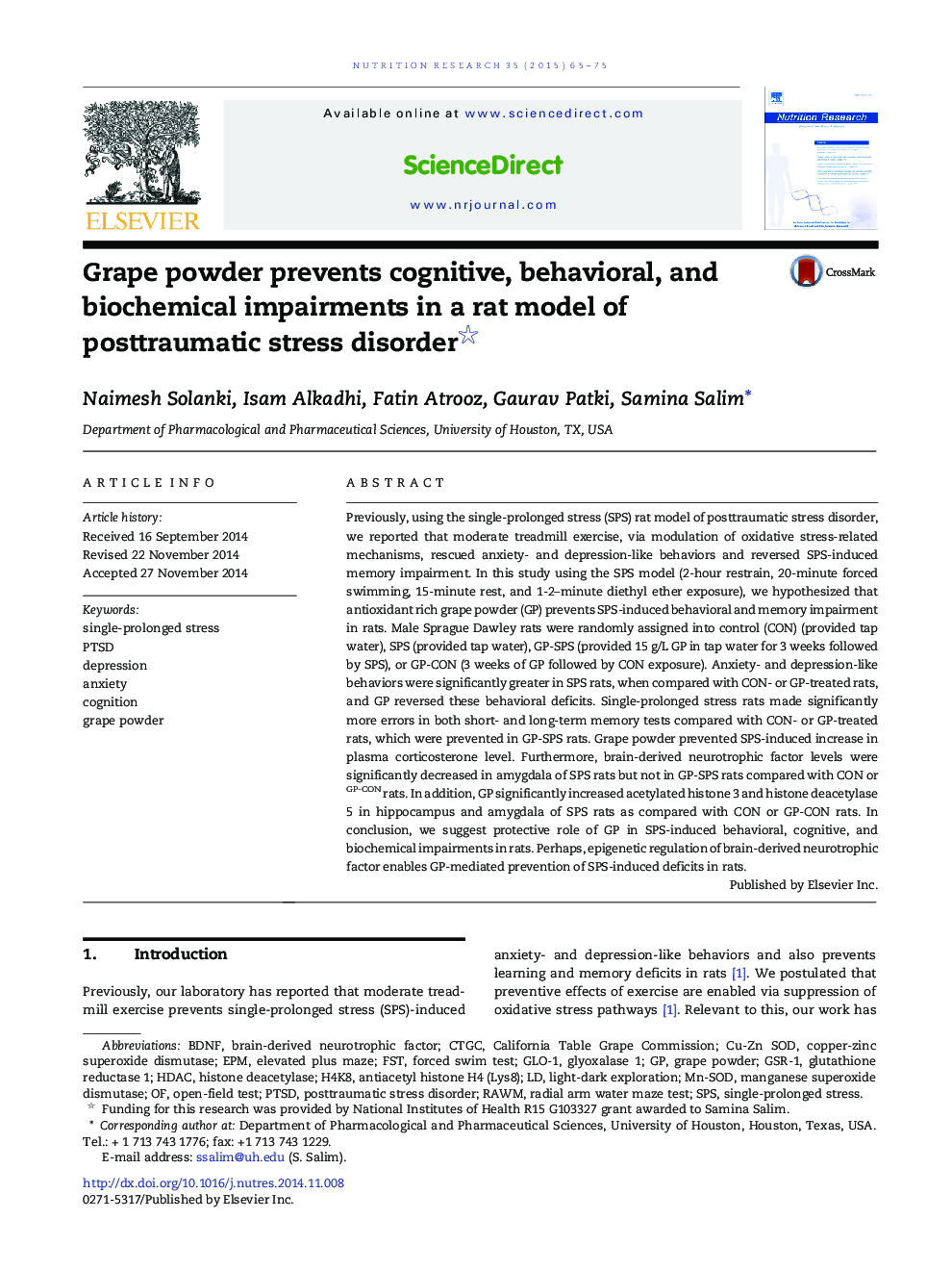| Article ID | Journal | Published Year | Pages | File Type |
|---|---|---|---|---|
| 2808958 | Nutrition Research | 2015 | 11 Pages |
Previously, using the single-prolonged stress (SPS) rat model of posttraumatic stress disorder, we reported that moderate treadmill exercise, via modulation of oxidative stress-related mechanisms, rescued anxiety- and depression-like behaviors and reversed SPS-induced memory impairment. In this study using the SPS model (2-hour restrain, 20-minute forced swimming, 15-minute rest, and 1-2–minute diethyl ether exposure), we hypothesized that antioxidant rich grape powder (GP) prevents SPS-induced behavioral and memory impairment in rats. Male Sprague Dawley rats were randomly assigned into control (CON) (provided tap water), SPS (provided tap water), GP-SPS (provided 15 g/L GP in tap water for 3 weeks followed by SPS), or GP-CON (3 weeks of GP followed by CON exposure). Anxiety- and depression-like behaviors were significantly greater in SPS rats, when compared with CON- or GP-treated rats, and GP reversed these behavioral deficits. Single-prolonged stress rats made significantly more errors in both short- and long-term memory tests compared with CON- or GP-treated rats, which were prevented in GP-SPS rats. Grape powder prevented SPS-induced increase in plasma corticosterone level. Furthermore, brain-derived neurotrophic factor levels were significantly decreased in amygdala of SPS rats but not in GP-SPS rats compared with CON or GP-CON rats. In addition, GP significantly increased acetylated histone 3 and histone deacetylase 5 in hippocampus and amygdala of SPS rats as compared with CON or GP-CON rats. In conclusion, we suggest protective role of GP in SPS-induced behavioral, cognitive, and biochemical impairments in rats. Perhaps, epigenetic regulation of brain-derived neurotrophic factor enables GP-mediated prevention of SPS-induced deficits in rats.
